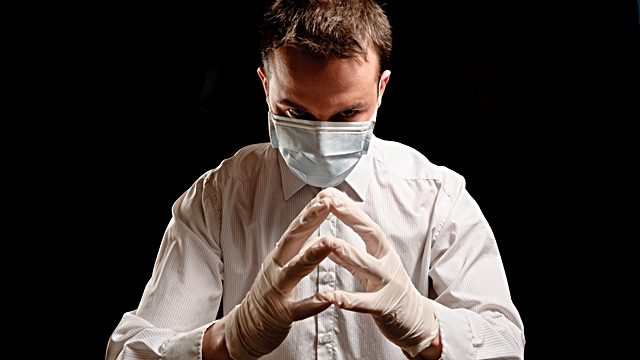Doctors: Health care monopoly driving them out of business

DOC SHORTAGE: The underpayment of doctors by government health care plans is driving doctors out of business in Vermont.
By Bruce Parker | Vermont Watchdog
Single-payer advocates promise high-quality low-cost health care for all.
But physicians in Vermont say the state’s move towards a single-payer health care system is driving independent doctors out of business and eliminating patient choice.
“The health systems have caused it to be nearly impossible from a financial standpoint to stay in private practice. That’s not so in the rest of the country,” Dr. Paul Reiss, a Williston family practice physician, told Vermont Watchdog.
“We’ve gotten to a place here in Vermont where we have about 20 percent independents, yet in the rest of the country 50 to 60 percent are independent practice.”
According to Reiss, the dwindling number of independent doctors in Vermont is due in part to underpayment from government health care programs.
“You get paid for the work you do if you participate with Medicaid, but they pay you considerably less than commercial payers like Blue Cross or MVP, and typically less than Medicare as well. So for the same services you get less.”
MEDICAL MONOPOLY: Dr. Paul Reiss, a family physician in Williston, Vt., says independent medical practices can’t compete against the hospital system in Vermont.
Reiss said underpayment is making it difficult for doctors in Vermont to balance their budgets, hire support staff and fund basic operations.
Dr. Ernest Bove, a Rutland urologist who has served patients for 29 years, said underpayment from Medicare and Medicaid is hurting specialists, as well.
“Reimbursement rates make it very difficult for a specialist practice to survive in Vermont. That’s why physicians are joining hospitals and becoming employees. They can’t run a business anymore,” he said.
“Reimbursements have been flat for years and have even gone down in many instances. And your expenses keep going up. I estimate a 5 percent cycle of inflation every year in terms of electrical costs, which are already high, and I’m paying $3.50 for heating oil, so that’s high. But the reimbursement rate remains flat. Plus your employees need a raise. You just can’t stay alive. That’s why people are leaving.”
Michael Tanner, senior fellow at the Cato Institute, told Vermont Watchdog that Medicaid’s average reimbursement rate to doctors is 72 cents on the dollar. Medicare is slightly higher at around 80 cents on the dollar.
“(Medicare) is slightly better than Medicaid right now. But under Obamacare, if everything goes as predicted, Medicare will reimburse less than Medicaid within 10 years.”
For many doctors across Vermont, Medicare and Medicaid patients comprise a significant portion of the total clientele. Bove said 75 percent of his patients come from Medicaid or Medicare. The numbers just don’t work, he said.

DOCTORS OUT: Dr. Ernest Bove, a urologist from Rutland said if he was 10 years younger he would leave Vermont and establish his practice in another state.
“If I was 10 years younger, I would have left Vermont a long time ago to go someplace else to practice,” Bove said.
Meanwhile, hospitals, which will serve as the backbone of Vermont’s single-payer system, also encounter underpayment but recoup their losses through privileged negotiations with the state’s two major insurers.
“If (hospitals) are not being paid by Medicaid, they can demand more from Blue Cross and MVP to make up for that deficit,” Reiss said.
“In independent practice — whether primary care, specialty care, physical therapy or chiropractor — you can’t make that up by going to the commercial payers and demanding more, because they’ll just say no. In fact, most independent practitioners in this state are being paid considerably less for the same exact services hospital-employed physicians are being paid for because of the clout of the hospitals, because we have a monopolistic hospital system. The hospitals can just demand a fee increase every year from Blue Cross.”
Whereas independent practitioners operate on razor thin margins, the hospital systems are well funded — they’re able to buy land, build new things and fund projects, Reiss said.
What does this mean for Vermont, which plans to put everyone into a single government-run system?
“It’s going to create a (doctor) shortage,” Tanner said. “It’s increasing demand without increasing supply. You don’t have to be an economic genius to know what happens if you have greater demand and no change in supply.”
Bove agreed, saying it would be difficult to recruit specialty physicians such as urologists, orthopedic surgeons and ophthalmologists. He predicted specialists would see a “net migration out of Vermont.”
Reiss said the recent closing of Green Mountain Urology is the model of what’s to come.
“Green Mountain Urology fell apart, and the doctors were offered positions at Fletcher Allen (hospital) instead. So the only independent option for urology services in Chittenden County is gone. You can only get urology services through Fletcher Allen.”
While Reiss said the cost of urology services may have doubled as a result, his biggest worry is that consumer choice is about to disappear in Vermont.
“The real fear is that with single–payer comes single provider, meaning there is one mega delivery system run by the hospitals. And that takes away all the choice consumers will have with where they get their care, because there will be only one provider of care — just like having one utility company,” he said.
“That will be your only choice, because it will dominate the market, and you won’t have the ability to switch your health care.”
Contact Bruce Parker at bparker@watchdog.org







